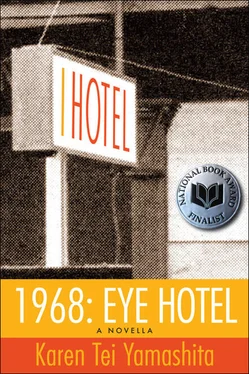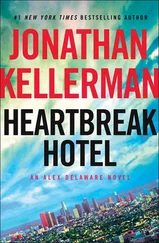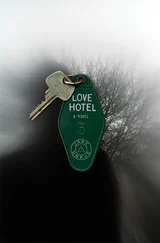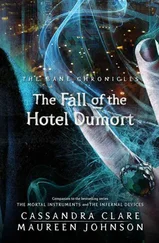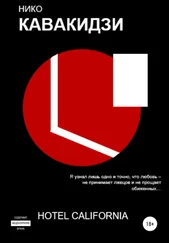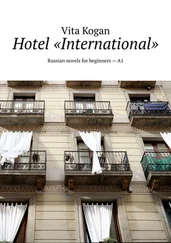One of Chen’s young protégés, Paul Wallace Lin, sat among the students with a notebook and fingered the pages of Mao’s talk.
Chen moved around the tables confidently. Two or three patrons were huddled in the corners with coffee, reading their newspapers but still listening to Chen. Even Joanna was seated among the students. “It’s important to consider the date of this talk. May second, two days before the May Fourth movement anniversary. As we have previously discussed, on May 4, 1919, a student uprising in Peking and Shanghai protested the Versailles Treaty. The Versailles Treaty marked the end of World War I but also relinquished previously held Chinese territory to the Japanese. This was the beginning of a Chinese nationalist movement driven by Marxist antifeudal, anti-imperialist political forces.”
Paul nodded and underlined student uprising. His father had been a student then too.
“And 1942. The United States had just entered the war against Japan, a war the Chinese had been fighting already for five years. Mao identified the principal enemy of this period: Japanese imperialists.”
Paul scribbled the dates into his notebook. Imagine Professor Chen pontificating on Mao, adding fuel to the fire already destroying our campus.
Chen continued, “Taken in this context of war, Mao continues . . . ‘In our struggle for the liberation of the Chinese people, there are various fronts, among which are the fronts of the pen and of the gun, the cultural and the military fronts. To defeat the enemy we must rely primarily on the army with guns. But this army alone is not enough; we must also have a cultural army, which is absolutely indispensable for uniting our own ranks and defeating the enemy .’” Indeed. But to be fair, Chen never had the teeth for violence. He would never have jumped on a truck and yanked out power cords and destroyed equipment. He was much too refined. He really believed in the cultural army, in liberation by means of the pen. So he continued.
“I realize, considering the violence we have sustained in recent days under the severe measures of the current administration—”such an oblique reference to our acting president—“it would seem to some that the gun might be the more appropriate tool. I want to make it clear that I am not advocating the gun. We are here to discuss contemporary Chinese literature, but we cannot examine that literature without also examining the political and social context that drives its formation during this time period.”
The students loved Chen. Suddenly his knowledge of the Chinese revolution and his Marxist point of view were in vogue. They sat around him mesmerized, as if he were Confucius himself, Chinese wisdom coupled with his contemporary knowledge of revolution. They all wanted revolution, but they didn’t know what revolution was. Paul, for example, wanted revolution, and he wanted this revolution packaged in the poet intellectual. But was he listening when Chen again quoted Mao? “Many writers and artists stand aloof from the masses and lead empty lives; naturally they are unfamiliar with the language of the people.” The language of the people was exactly the language our acting president had spent his life studying. Unlike Chen, he knew this language and how the common understanding of this language controlled society.
Accordingly, what Chen was not telling his students is that any war of words will ultimately be resolved in society’s decision to define those words. Art and literature. Mao Tse-Tung and the Cultural Revolution defined those words in the service of a political agenda. Poetry for the Marxist-Leninist must be written for the proletariat. Everything that Chen loved about art and literature had to be destroyed or changed. He knew this, but he didn’t tell the students.
Chen’s class was over. Students paid for their coffees and mud pies and wandered out, back to the picket line or to the next noon rally. Paul remained behind.
“Where’s Yat Min today?” Chen queried, using Edmund’s Chinese name.
“Working. Always working. He sent his apologies, and here’s his paper.”
Chen nodded. It was a thick treatise written entirely in Chinese. “Since he’s mastered two languages, maybe he should study a third.” Chen said this as if thinking to himself.
“Right. I’ll let him know.”
“It’s not necessary. He’ll figure it out for himself.” He packed his papers away in his briefcase and announced, “Do you have some time for a short walk? It’s just down Montgomery.” As they passed out of the café, he asked, “Did you know the Brighton?”
“No.”
“Maybe not. Your father used to hang out here, but then after your mother died, I guess he never came around again. Do you know Janis Joplin?”
“Not personally.”
“She was here the other day. Everyone’s been here. Now you too.”
They walked down Montgomery to Washington and stared at a parking lot. “Remember what I said about the Monkey Block? It used to be right here. There was a huge building, four stories, occupied most of the block. Your father lived here. It’s where he painted his best work. Where he met his friends. He knew everyone. William Saroyan, Diego Rivera, Kenneth Rexroth. Well, Rexroth is still around anyway. When Rivera came to paint his murals with his wife, Frida Kahlo, your father got the Chinese Revolutionary Artist Club together to host them. He was going to name you Diego, but your mother favored Paul. It was Paul for Paul Cézanne and Paul Valéry. Painter-poet. They had romantic hopes for you. You know, he knew Valéry in Paris.”
“What about Wallace?”
“Wallace? Middle name? Must have been Wallace Stevens. Your mother studied him at Stanford. It was her thesis.”
Paul shook his head because he didn’t know any of this. Chen could have been making it all up. The building was a parking lot, gone, Chen said, for about ten years now. All Paul ever knew during his years growing up was this parking lot. And there was more history before that, including Robert Louis Stevenson, Ambrose Bierce, Bret Harte, and Mark Twain. The names read like his American literature textbook. A history of artists and writers had been swept away, and now Chen was saying his father had been the rare Chinese American artist to add his name to the Monkey Block.
“Chinatown is just over there.” Chen pointed. “One day, your father went inside and closed the door.”
“Why? I don’t understand. I didn’t even know.”
Chen was silent for a moment. “I didn’t consider that. Of course, nothing was ever different for you. You never saw the change.”
“I feel I knew someone different. I know the paintings. Found all of them. I put them up, but I don’t know the person who painted them. I found his old easel and a box of dried-up tubes, but I never saw him paint.”
“You know, Valéry was a poet, then one day he quit, just like that, and never wrote a thing for the next twenty years. I think your father admired that sort of resolve to find another path. Does that make sense?”
“Maybe.”
“Some of those men at the funeral know your father’s past. They were in the artists’ club, but they might not admit it today. People like Rexroth and the North Beach crowd didn’t even know he died. For them, he disappeared.”
Chen crossed the street and Paul followed. They walked in silence over to Kearny, weaving around the old Chinese and Filipino bachelors emerging from the pool halls, barber, and cigar shops. “Like this building, this International Hotel.” He pointed to the sign on the central door and gestured up. “Occupied the entire block. The Monkey was taller, another story higher, and a more beautiful, stately granite structure, but like this, with businesses below, offices, restaurants, and when your father was there, the general motley crowd of bohemian types.” They turned the corner at Jackson to get a sense of the size of the building.
Читать дальше
